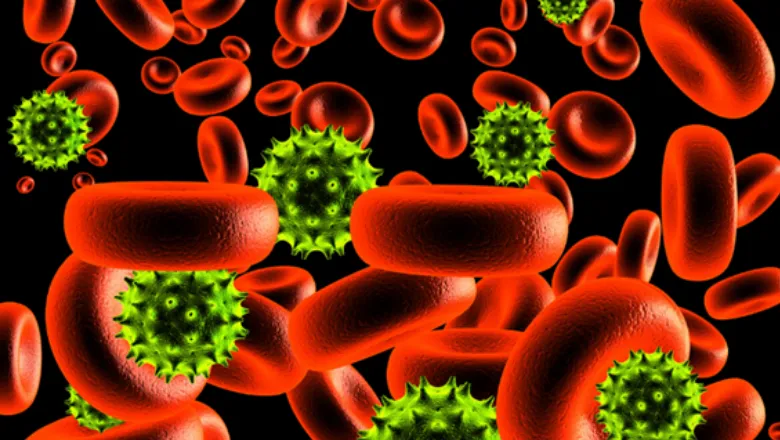After receiving the samples from our clinical collaborators last month, we subjected the samples to different sample preparation protocols, which allow our instruments to analyse RNA and protein biomarkers of each.
Lukas Schmidt, Lab Technician
06 July 2020
Quest for biomarkers in blood samples of COVID-19 patients to better understand host response
Researchers from the School of Cardiovascular Medicine & Sciences have been analysing blood samples of patients with a confirmed COVID-19 diagnosis to better understand the progress of the virus.

It has become increasingly clear that patients with severe COVID-19 suffer from numerous complications that are not just limited to the lungs, but also affect other organs. One of these complications is a high risk of developing blood clots.
There is therefore an urgent need to identify biomarkers within the blood to assess the manifestations, complications, and short and long-term outcomes of COVID-19 to improve treatment decisions.
A team, led by Manuel Mayr, British Heart Foundation Professor of Cardiovascular Proteomics in the School of Cardiovascular Medicine & Sciences, has been undertaking a type of testing – molecular profiling – on blood samples of patients with a confirmed COVID-19 diagnosis, which provides a comprehensive screen for such biomarkers.
The team’s clinical collaborators, Dr Manu Shankar-Hari, Dr Georg Auzinger and Dr Mark McPhail - from the School of Immunology & Microbial Sciences and Kings College Hospital respectively - have recently collected hundreds of blood plasma and serum samples from a cohort of COVID-19 patients at different points of their hospital stay in the intensive care unit. A significant proportion of these patients also died as a direct result of the virus. The same samples were collected from negative control patients.
Christian Cassel and Lukas Schmidt are both Lab Technicians working as part of Professor Mayr’s research group. They have been working to keep their lab operational since lockdown in preparation for the COVID-19 study, whilst their colleagues remain working from home.
The academic side of the group is now able to analyse the resulting data to determine whether patients who develop certain complications can be identified by a characteristic pattern of biomarkers early on, helping the researchers to better understand the progress of the virus.
For this, it is essential for the team to be working in tandem with bioinformaticians, basic scientists and physicians, including a BHF-funded PhD student, Dr Clemens Gutmann.
My clinical background combined with the research skills obtained throughout my ongoing PhD have proven extremely useful for me during this project. The opportunity to contribute to the fight against this disease has been highly motivating and exciting for me.
Dr Clemens Gutmann, BHF-funded PhD student
This ongoing study provides an example of how expertise in cardiovascular research can be applied to infectious diseases and exemplifies how different teams are collaborating across the Faculty to fight the current COVID-19 pandemic.

